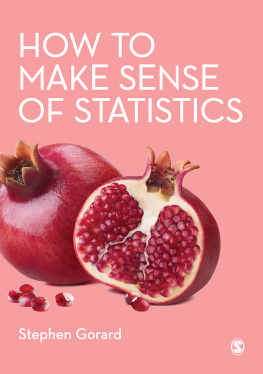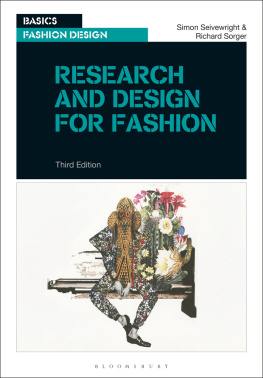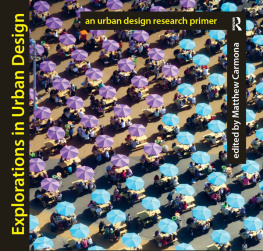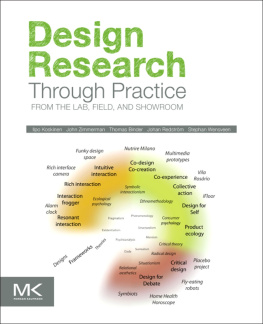SAGE has been part of the global academic community since 1965, supporting high quality research and learning that transforms society and our understanding of individuals, groups, and cultures. SAGE is the independent, innovative, natural home for authors, editors and societies who share our commitment and passion for the social sciences.
Find out more at: www.sagepublications.com
Connect, Debate, Engage on Methodspace
- Connect with other researchers and discuss your research interests
- Keep up with announcements in the field, for example calls for papers and jobs
- Discover and review resources
- Engage with featured content such as key articles, podcasts and videos
- Find out about relevant conferences and events
SAGE Publications Ltd
1 Oliver's Yard
55 City Road
London EC1Y 1SP
SAGE Publications Inc.
2455 Teller Road
Thousand Oaks, California 91320
SAGE Publications India Pvt Ltd
B 1/I 1 Mohan Cooperative Industrial Area
Mathura Road
New Delhi 110 044
SAGE Publications Asia-Pacific Pte Ltd
3 Church Street
#10-04 Samsung Hub
Singapore 049483
Stephen Gorard 2013
First published 2013
Apart from any fair dealing for the purposes of research or private study, or criticism or review, as permitted under the Copyright, Designs and Patents Act, 1988, this publication may be reproduced, stored or transmitted in any form, or by any means, only with the prior permission in writing of the publishers, or in the case of reprographic reproduction, in accordance with the terms of licences issued by the Copyright Licensing Agency. Enquiries concerning reproduction outside those terms should be sent to the publishers.
Library of Congress Control Number: 2012944072
British Library Cataloguing in Publication data
A catalogue record for this book is available from the British Library
ISBN 978-1-4462-4901-7
ISBN 978-1-4462-4902-4 (pbk)
Editor: Katie Metzler
Assistant editor: Anna Horvai
Production editor: Ian Antcliff
Copyeditor: Jennifer Hinchliffe
Proofreader: Kate Harrison
Marketing manager: Ben Griffin-Sherwood
Cover design: Francis Kenney
Typeset by: C&M Digitals (P) Ltd, Chennai, India
Printed by: MPG Books Group, Bodmin, Cornwall
About the Author
Stephen Gorardis Professor of Education and Well-being at the University of Durham, a Methods Expert for the US government Institute of Education Science, member of the ESRC Grants Awarding Panel, and Academician of the Academy of Social Sciences. His work concerns the robust evaluation of education as a lifelong process, focused on issues of equity and effectiveness. He is a widely read and cited methodologist, involved in international and regional capacity-building activities, and used regularly as an adviser on the design of evaluations by central and local governments, NGOs and charities. He is currently an evaluator for the European Commission Directorate-General for Education and Culture, the Department of Work and Pensions, the Food Standards Agency, the Learning and Skills Information Service, and the Educational Endowment Foundation. He is working on identifying the causal link between attitudes, behaviour and school attainment for the Joseph Rowntree Foundation, patterns of school intakes for the British Academy, enhancing parental involvement for the Nuffield Foundation, multiple randomised controlled trials of policy and practice for the Educational Endowment Foundation, and improving social science research for the ESRC RDI. He is author of nearly 1,000 books and papers.
Preface
This new book is based on my own experiences of all the approaches described herein. It is for those who want to design their own research, or make critical judgements about the designs of others. It is suitable for new researchers, easy to read, simple in style, with little terminology, and intended for a wide audience. The book includes the elements of research designs, a description of the common existing designs, and even advice on sampling, analysis, ethics, and writing your first research proposal. It contains a large number of craft tips. Yet, it is not simply a cookbook or a set of off-the-shelf designs, and does not offer push-button solutions. Rather, it is about strategies for research, the logic of research, and how to make convincing research-based claims. It empowers readers to make judgements by focusing on why the elements of design matter, and how they can be used to generate an almost infinite variety of study designs. This book is also highly innovative, introducing new ideas for research design. Some readers will find some content contentious, but I have tried to provide a reasoned argument for all steps throughout. Even so, writing a book of this ambition is a tough task. I would urge readers to think carefully about the material in the book, and to pursue the examples and references cited within it.
Writing a book about research design for social scientists is a special challenge, because social science is so varied, ranging from approaches like cultural studies, through applied fields like business studies, to disciplines like psychology. Design is the Cinderella of methods training. A typical training course for social scientists might move from epistemological considerations to methods of data collection and analysis, without any consideration of study design. There are plenty of books about instrument or sample design, and even more about methodology. Design tends to be confused with paradigm, data collection, or analysis. As a consequence, many researchers do not consider design as a separate issue when planning their own research. Many may not even know what design is, or feel that it is something reserved for those conducting factorial experiments or analysing cohort studies. Writing about research design is also a challenge because there is quite strong resistance to it. When people say that something is a Cinderella, they usually mean that it is ignored or forgotten. But in the fairy story, if you recall, Cinderella is deliberately repressed by her ugly sisters. That is what I mean also about design. There is some unaccountable hostility to it, perhaps by those who have the most to lose if research improves. As this book illustrates, design leads to better social science research, just like any form of serious planning ahead would.












